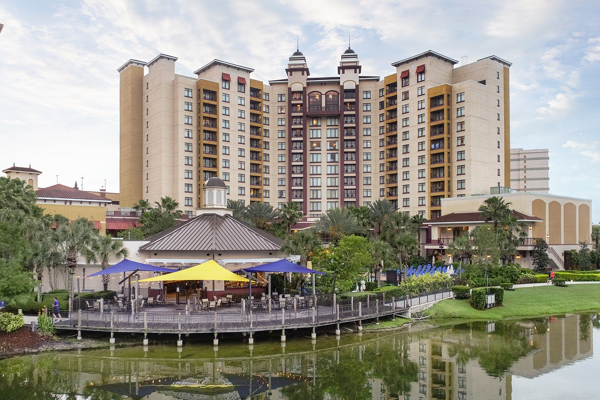Earnings season for the first quarter of 2022 kicked off late Tuesday led by Wyndham Hotels & Resorts, Parsippany, New Jersey, which beat earnings estimates driven predominantly by non-fee related items, according to analysts.
Wyndham said global RevPAR grew 39% compared to first quarter 2021 in constant currency, including 38% growth in the U.S. and 46% growth internationally. It said the increase is approximately two-thirds driven by stronger pricing power and one-third driven by higher occupancy levels.
U.S. RevPAR growth was a bit below expectations of R.W. Baird, while global RevPAR growth (vs. 2019) was -4% versus Baird’s -1% estimate. U.S. RevPAR was +4% (but ~400 bps short of Baird’s expectation), and international RevPAR was -17%.
Adjusted EBITDA hit US$159 million and adjusted for the recently completed and pending asset sales, full year adjusted EBITDA guidance was raised by US$5 million.
Baird noted a slowdown in share buyback in Q1, theorizing that Wyndham is focusing more on potential external growth opportunities.

Summarizing guidance for the remainder of 2022, RevPAR growth is unchanged at 12% to 16%; net unit growth is unchanged at 2% to 4%; adjusted EPS is up 3.3% to US$3.39-US$3.51; R.W. Baird wrote the asset sale timing is a boost (Wyndham earns ~2/3 of annual EBITDA and benefits from the D&A savings; and adjusted EBITDA of US$605-US$625 million is unchanged with the “core business” adding US$5 million.
Systemwide rooms for Wyndham grew 200 basis points year-over-year, including 120 basis points of growth in the U.S. and 330 basis points of growth internationally. As expected, these increases included strong growth in both the higher RevPAR midscale and above segments in the U.S. and the direct franchising business in China, which grew 6% and 12%, respectively.
Wyndham awarded 165 new contracts in 1Q22, including 50 new construction projects for the company’s new extended-stay brand, compared to 112 in the first quarter 2021. At the end of the quarter, the company’s global development pipeline consisted of approximately 1,600 hotels and approximately 204,000 rooms, of which approximately 80% is in the midscale and above segments (nearly 70% in the U.S.). The pipeline grew 9% year-over-year, including 12% domestically and 7% internationally. Approximately 63% of the company’s development pipeline is international and 79% is new construction, of which approximately 35% has broken ground.
In addition, Wyndham announced the sale of the 400-room Wyndham Grand Orlando Resort Bonnet Creek for US$120.5 million. It is also expected to close in May on the sale of the 400-room Wyndham Grand Rio Mar Resort in Puerto Rico.
At the same time, Wyndham completed the exit of its select-service management business and received US$84 million from CorePoint Lodging, while retaining the franchise agreements for these hotels.
“Strong leisure and everyday business travel demand drove RevPAR 4% above 2019 levels domestically and we continued to simplify our operations by exiting our select-service management business and selling one of our two owned assets,” said Geoffrey Ballotti, Wyndham’s president and chief executive officer. “Our development pipeline increased 9% to a record 204,000 rooms, including the first 50 deals for our new extended-stay product, and our room openings grew 50% more than last year, putting us solidly on track with our full year net-room growth guidance.”
Pebblebrook beats
Elsewhere on Tuesday, Pebblebrook Hotel Trust beat Wall Street expectations reporting it had funds from operations of US$14 million in 1Q22, or 11 cents per share, beating average estimates of 3 cents per share. The company also reported that it had a loss of US$110.9 million, or 85 cents per share.
Pebblebrook also posted revenue of US$258.1 million in the period, also exceeding forecasts that averaged US$244.3 million.
For the current quarter ending in July, Pebblebrook Hotel expects its per-share funds from operations to range from 56 cents to 63 cents.
Same-property rooms RevPAR was +159.6% y/y and -23.4% versus 1Q19. It beat Truist Securities estimate of +146.3% and -30%, respectively.
Truist Securities analyst Gregory Miller wrote, “Discussion with Pebblebrook was very encouraging on overall demand improvement, including business travel for weekdays and group bookings. Pebblebrook noted the speed of recovery, including record booking months with the expectation of improvement to the booking pace presented in last week’s operations update (group at ~70% to 2019 levels for 2023 with ADR +6.8%).”
Looking ahead to 2Q22 outlook, Truist added, “While we view some of the strength as resort-driven and we did not ask about the makeup of recovery specific to corporate travel (transient, in-house group, or convention citywide), overall, the results are highly encouraging in light of the macroeconomic and geopolitical backdrop.”
Scandic reports
Stockholm, Sweden-based Scandic also provided an interim report for 1Q22, stating net sales rose by 194%, while average occupancy rate was 39.1% compared with 17.5% during the first quarter last year.
Scandic said occupancy was impacted negatively by extensive pandemic restrictions in its markets, but business did improve toward the end of the quarter and in March, when Scandic’s occupancy rate rose to 53.5%.
Scandic President and CEO Jens Mathiesen said market development remained positive at the beginning of the second quarter. Occupancy in April is expected to be at the same level as in March despite the negative effect of Easter falling in April.
Mathiesen also said Scandic sees potential to increase space efficiency at its hotels and will continue taking steps to improve profitability in restaurant operations. “Profitability does not derive solely from lower costs and greater efficiency,” he added. “Average room rates in the Nordic hotel market have now returned to about the same level as before the pandemic, and we now also need to ensure that we fully compensate for underlying cost inflation.”
